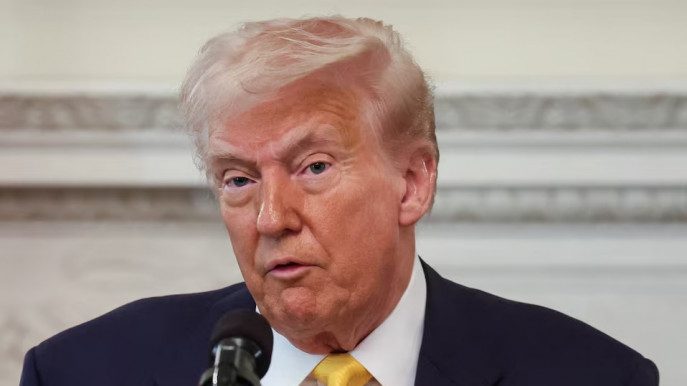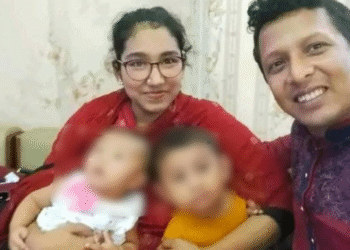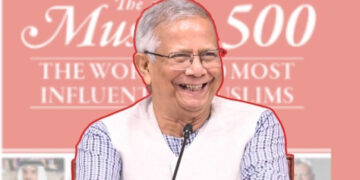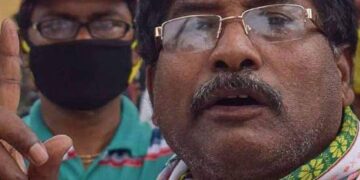In a move that has reignited fierce debate over immigration and national security, President Donald Trump on Wednesday signed a sweeping new travel ban targeting 12 countries, reviving one of the most controversial hallmarks of his first term in office.
The executive order, which goes into effect Monday, bans all travel to the United States from a dozen nations, including Afghanistan, Iran, Yemen, and several African and Latin American states. A partial ban has also been imposed on seven additional countries, restricting temporary work visas and student entry.
The action comes in the wake of a violent incident in Boulder, Colorado, where a suspect reportedly used a makeshift flamethrower in an attack at a Jewish solidarity rally. Authorities have identified the alleged assailant as Mohammed Sabry Soliman, an Egyptian national who had overstayed a tourist visa and was seeking asylum.
In a video address from the Oval Office posted on X (formerly Twitter), Trump said the attack underscored the “grave danger posed by unchecked and unvetted migration.”
“We don’t want them,” Trump said. “The recent terror attack in Boulder, Colorado has made it crystal clear: America must be protected from foreign nationals who arrive without proper vetting. We cannot afford to let what happened in Europe happen here.”
Who’s Affected
The travel ban targets nationals from the following 12 countries:
-
Afghanistan
-
Myanmar
-
Chad
-
Republic of the Congo
-
Equatorial Guinea
-
Eritrea
-
Haiti
-
Iran
-
Libya
-
Somalia
-
Sudan
-
Yemen
Additionally, a partial restriction applies to:
-
Burundi
-
Cuba
-
Laos
-
Sierra Leone
-
Togo
-
Turkmenistan
-
Venezuela
Citizens from these countries may still be eligible for certain work visas, but face tightened scrutiny and limitations.
Exemptions for Global Events
Athletes from affected countries competing in the 2026 FIFA World Cup, co-hosted by the United States, Canada, and Mexico, as well as participants in the 2028 Summer Olympics in Los Angeles, are exempt from the travel restrictions. These carve-outs, according to the executive order, are “in recognition of international sporting unity and existing diplomatic commitments.”
Harvard Students Targeted
In a separate but related move, Trump also announced a freeze on visas for incoming foreign students who had planned to begin studies at Harvard University this fall. The measure, though not part of the travel ban order, marks an escalation in Trump’s criticism of elite academic institutions, which he has frequently accused of fostering “radical liberalism.”
“We will not subsidize ideological training camps masquerading as universities,” Trump said in remarks to appointees at a White House summer gathering. “Harvard is not immune.”
Echoes of 2017
Trump compared the new measures to his 2017 “Muslim Ban,” which restricted travel from several Muslim-majority countries and sparked mass protests, legal challenges, and international backlash.
“That powerful ban from 2017 stopped terrorist attacks in the U.S. that we saw happening across Europe,” he said. “This is no different.”
The new ban, like its predecessor, cites “inadequate security cooperation” and “inability to verify travelers’ identities” as justification for the restrictions. Countries like Libya, Sudan, and Somalia were flagged for having dysfunctional or non-existent passport and border systems.
Iran, already listed by the U.S. State Department as a state sponsor of terrorism, is included due to what Trump called its “active efforts to undermine global peace and U.S. security interests.”
Backlash Begins
Critics have condemned the order as discriminatory and politically motivated. Jamal Abdi, president of the National Iranian American Council, warned of the toll it will take on American families.
“The impact of this ban will once again be felt by Americans who are denied the chance to attend weddings, funerals, or see the birth of a child,” Abdi said. “It’s collective punishment.”
Legal experts say the ban is almost certain to face immediate challenges in federal court, as did previous iterations. Internationally, Venezuela issued a sharp rebuke, with Interior Minister Diosdado Cabello urging Venezuelans to reconsider travel to the United States.
“Being in the United States is a great risk for anyone, not just for Venezuelans,” Cabello said during a press briefing. “They call us dangerous, but their own streets are filled with violence.”
Controversial Rollout
The White House unveiled the policy without a press conference, an unusual move for such a sweeping change. Trump made the announcement just minutes after addressing a group of 3,000 political appointees at a festive “summer soiree” from the South Lawn balcony.
Reporters were not present for the signing, which instead was shared via social media and government briefings. The abruptness of the announcement caught many lawmakers and even cabinet members off guard.
“This was a presidential directive—signed, sealed, and delivered with urgency,” said White House Deputy Press Secretary Abigail Jackson. “President Trump is fulfilling his promise to protect Americans from dangerous foreign actors that want to come to our country and cause us harm.”
A Return to Hardline Immigration Policy
The move signals a firm return to Trump’s hardline immigration doctrine and America-first nationalism, hallmarks of his first term that once dominated headlines and courtroom battles alike.
While Egypt the home country of the alleged Colorado attacker—is not included in the travel ban, the order lays out country-specific justifications for those listed, emphasizing national security concerns, visa overstays, and ineffective governance in the issuance of travel documents.
“If a country cannot verify the identity of those trying to enter our borders, we will not take the risk,” Trump said.
With tensions already high on immigration policy, particularly surrounding the southern border and asylum-seeker processing delays, this new executive order is expected to become a flashpoint in ongoing political debate as the 2026 midterm elections approach.
















